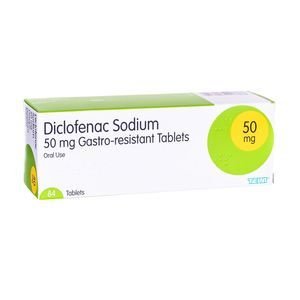
Diclofenac sodium is an oral non-steroidal anti-inflammatory drug (without a prescription). The most common of these is diclofenac. All OTC NSAIDs increase the risk of stroke, heart attack, or heart failure. This risk is greater the more you take over-the-counter NSAIDs and whether you are taking high or low doses.
If you already have risk factors for heart disease, such as high cholesterol or high blood pressure, your risks will be even higher. You are also more likely to get a stroke from taking diclofenac. High doses increase the risk significantly. People with heart disease and high blood pressure are especially at risk of stroke due to this drug. High blood pressure is associated with a risk for both men and women.
Women are especially vulnerable to the effects of diclofenac, which is associated with high cholesterol levels. There are other risk factors such as diabetes, kidney problems, liver disease, smoking, obesity, alcohol consumption, and lack of exercise. When you combine these other risk factors, it becomes easier to understand why you are at greater risk when using diclofenac.
Perhaps many of these things can be avoided by acting differently. For example, quitting smoking can drastically reduce your chances of developing a problem. Exercise and proper nutrition can also help prevent some of these conditions. However, this is difficult to do without medication. Drugs can help reduce your risk.
If you have had a heart attack in the past, you may be at additional risk of developing it in the future. For example, if your risk factors were diabetes or high blood pressure, you may be at an increased risk from taking diclofenac. If you have had a stroke, you may have some risk from taking diclofenac. If you have had heart valve disease, you may have an increased risk due to medications.
Some people may need to avoid taking diclofenac if they have had kidney or liver failure. Or it can cause an allergic reaction in some people.
Some of the more serious side effects of diclofenac include heart blockage, vomiting, nausea, stomach bleeding, seizures, vision problems, depression, and coma. These side effects can occur with prolonged use.
Long-term use of diclofenac can lead to permanent nerve damage. Results may not always be reversible. This is why some doctors may not recommend this drug to people with certain medical conditions or a history of heart attacks or strokes.
When taken in large quantities, this drug can cause serious side effects such as stomach ulcers and bleeding, stomach cancer, nerve damage, and liver toxicity. The biggest risk is that it can cause kidney damage if taken over a long period of time.
Other people may experience serious side effects, including: confusion, seizures, hallucinations, trouble breathing, dizziness, headache, stomach cramps, vision changes, depression, and muscle weakness. You may experience some mild effects, including: stomach pain, bloating, diarrhea, nausea, vomiting, constipation, and bloating.
If you are pregnant, you should talk to your doctor about the possibility of more serious side effects. Diclofenac can also be dangerous to your unborn baby. Your baby may develop problems such as jaundice, birth defects, mental retardation, hearing loss, decreased IQ and growth problems, heart failure, and central nervous system problems. Some of these problems can occur even with moderate doses of the drug.
You may also be at risk of serious side effects if you take any other medications that contain paracetamol (NSAIDs), aspirin, or ibuprofen. If you take birth control pills, you may experience bleeding and stomach ulcers. Diclofenac may slow your heart rate and increase your risk of high blood pressure.
Serious complications with diclofenac use include liver problems. It can cause stomach bleeding, liver failure, and sometimes death. It can damage your heart valves, lungs, and kidneys.